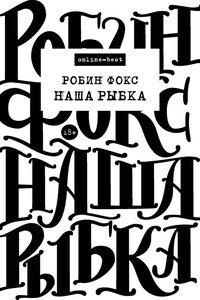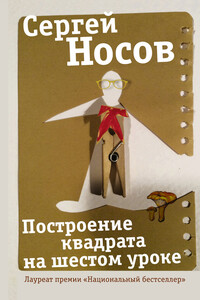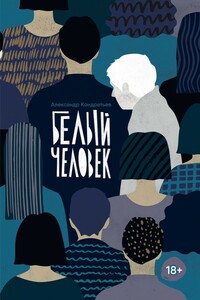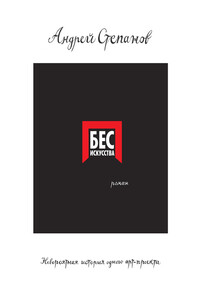36 Arguments for the Existence of God - [39]
Cass nodded. He wasn’t going to argue with her. And she was right to bring up the children who never get the chance to theodicize their suffering, just as Dostoevsky had been right: “If the suffering of children goes to swell the sum of sufferings which was necessary to pay for truth, then I protest that the truth is not worth such a price.” Cass had quoted that in his book.
“I loved your book,” she said suddenly, out of the blue. “I haven’t told you yet, have I, how much I loved it? It made me proud.”
“Thank you,” he said, dumbfounded.
Roz, too, seemed a bit unsteady, her pacing slowed.
“You’re doing something important, Cass.”
“Oh, come on, Roz. You used to be able to hold your alcohol better.”
“No, I mean it. I kept thinking that only you could have written The Varieties of Religious Illusion. You’ve spent years trying to understand what happened back then, all the drama with the Klap and Azarya and even me, and this book is the outcome, and the world’s the better for it.”
“I don’t know what to say. Thank you. It means the world to me to hear you speak like this. I had no idea.”
“I guess you know now how I feel about what you’ve been doing with your life. So-why don’t you tell me your objections to what I’m doing?” She was smiling again. “What have you got against immortality?”
“I just wonder whether coming to terms with one’s own mortality isn’t a necessary part of seeing oneself with the proper objectivity. Understanding that you have your time here on Earth, as the others that came before you had theirs, and as those who will come after will have theirs. You weren’t for ages and ages, you are now, and soon enough you won’t be anymore. There’s nothing special about you just because you happen to be you. There’s nothing special about your time just because it happens to be your time.”
“We’ll still have mortality enough to try our souls, Cass. Living forever isn’t on the table. Death will come. It’s simply mathematics. I’m just talking about curing our senescence, our biologically running down. There’s nothing we can do to prevent accidents like falling down the stairs and breaking your neck, or being caught in the crossfire of some pointless feud, or getting hit by a runaway trolley. There’s no way to bring the probability of life’s slings and arrows down to zero, which means that, by the laws of probability, something’s going to get you, sooner or later. Five hundred years is actually a bit of an exaggeration. It’s probably more like two hundred years on average that we can expect to live, once we’ve wiped out senescence. Every morning, you play Russian roulette, and the gun has no memory. Sooner or later, your bullet will come. No one is literally immortal. So carpe diem! In fact, carpe diem all the more, because if you die today-and you know, if you compute which is the most likely day that you’ll die, then mathematically the answer is always today-then you’ll be losing out on all the more, an eternity of more.”
“So what you’re saying is that death will be even more terrifying, since we’ll have so much more to lose. And the life we’ll be losing will be that sweet life of undiminished potentiality, with all our powers still intact. You’re making death even more alarming. Death is going to be just as inevitable, if your mathematics is right, but we’ve got that much more to lose. So remind me again of what we gain?”
“You don’t think that eliminating the horror of watching yourself run down, getting more debilitated and diminished and pathetic with every year you live past seventy, isn’t a gain? You don’t think that the probability of your getting, on average, two hundred years to explore all of life’s possibilities isn’t a gain?”
“You don’t think our pleasure in life will be diminished if we have more than double a normal life span? The ability to savor life does tend to diminish as one gets older, doesn’t it, once the freshness and newness has worn off?”
“Does it? I haven’t noticed.”
“After you’ve seen it all and done it all, several times over, doesn’t the pleasure pall?”
“You can never see and do it all! And I think the capacity for pleasure is something that needs to be cultivated, like an appreciation for music or wine. The more experience you have, the more profound the pleasure. Memories add depth.”
Cass didn’t answer. He held his glass of Rioja up before the candle flame, staring into its rich ruby color as it caught the light. It was a good bottle, a Muga Reserva 2003-“very elegant and suggestive” is the way the menu had put it.
“What is it?” she asked.
“Well, it’s a funny thing, Roz. I’ve missed you.”
“That’s funny?”
“I have to confess that I hadn’t exactly realized it until now.”
“I hadn’t realized how much I’d missed you either, until I read your book. It brought me running.”
“Running? Where?”
“Why, here. Right here.”
He shook his head, agape at the irony. He’d written The Varieties of Religious Illusion in order to answer the question Lucinda had posed to him. He didn’t know at the time whether the question was sarcastic or sincere. He only knew that to answer it he had to write an entire book, working out his conviction that the religious sensibility comes in many varieties and isn’t exclusively confined to explicitly religious contexts. He hadn’t expected Lucinda to read his book, much less to be carrying it in her shoulder bag as she materialized out of his fantasies in the autumn twilight. And as a consequence of his writing the book, all sorts of other things had followed-not least of all, Roz.

Я был примерным студентом, хорошим парнем из благополучной московской семьи. Плыл по течению в надежде на счастливое будущее, пока в один миг все не перевернулось с ног на голову. На пути к счастью мне пришлось отказаться от привычных взглядов и забыть давно вбитые в голову правила. Ведь, как известно, настоящее чувство не может быть загнано в рамки. Но, начав жить не по общепринятым нормам, я понял, как судьба поступает с теми, кто позволил себе стать свободным. Моя история о Москве, о любви, об искусстве и немного обо всех нас.

Сергей Носов – прозаик, драматург, автор шести романов, нескольких книг рассказов и эссе, а также оригинальных работ по психологии памятников; лауреат премии «Национальный бестселлер» (за роман «Фигурные скобки») и финалист «Большой книги» («Франсуаза, или Путь к леднику»). Новая книга «Построение квадрата на шестом уроке» приглашает взглянуть на нашу жизнь с четырех неожиданных сторон и узнать, почему опасно ночевать на комаровской даче Ахматовой, где купался Керенский, что происходит в голове шестиклассника Ромы и зачем автор этой книги залез на Александровскую колонну…

В городе появляется новое лицо: загадочный белый человек. Пейл Арсин — альбинос. Люди относятся к нему настороженно. Его появление совпадает с убийством девочки. В Приюте уже много лет не происходило ничего подобного, и Пейлу нужно убедить целый город, что цвет волос и кожи не делает человека преступником. Роман «Белый человек» — история о толерантности, отношении к меньшинствам и социальной справедливости. Категорически не рекомендуется впечатлительным читателям и любителям счастливых финалов.

Кто продал искромсанный холст за три миллиона фунтов? Кто использовал мертвых зайцев и живых койотов в качестве материала для своих перформансов? Кто нарушил покой жителей уральского города, устроив у них под окнами новую культурную столицу России? Не знаете? Послушайте, да вы вообще ничего не знаете о современном искусстве! Эта книга даст вам возможность ликвидировать столь досадный пробел. Титанические аферы, шизофренические проекты, картины ада, а также блестящая лекция о том, куда же за сто лет приплыл пароход современности, – в сатирической дьяволиаде, написанной очень серьезным профессором-филологом. А началось все с того, что ясным мартовским утром 2009 года в тихий город Прыжовск прибыл голубоглазый галерист Кондрат Евсеевич Синькин, а за ним потянулись и лучшие силы актуального искусства.

